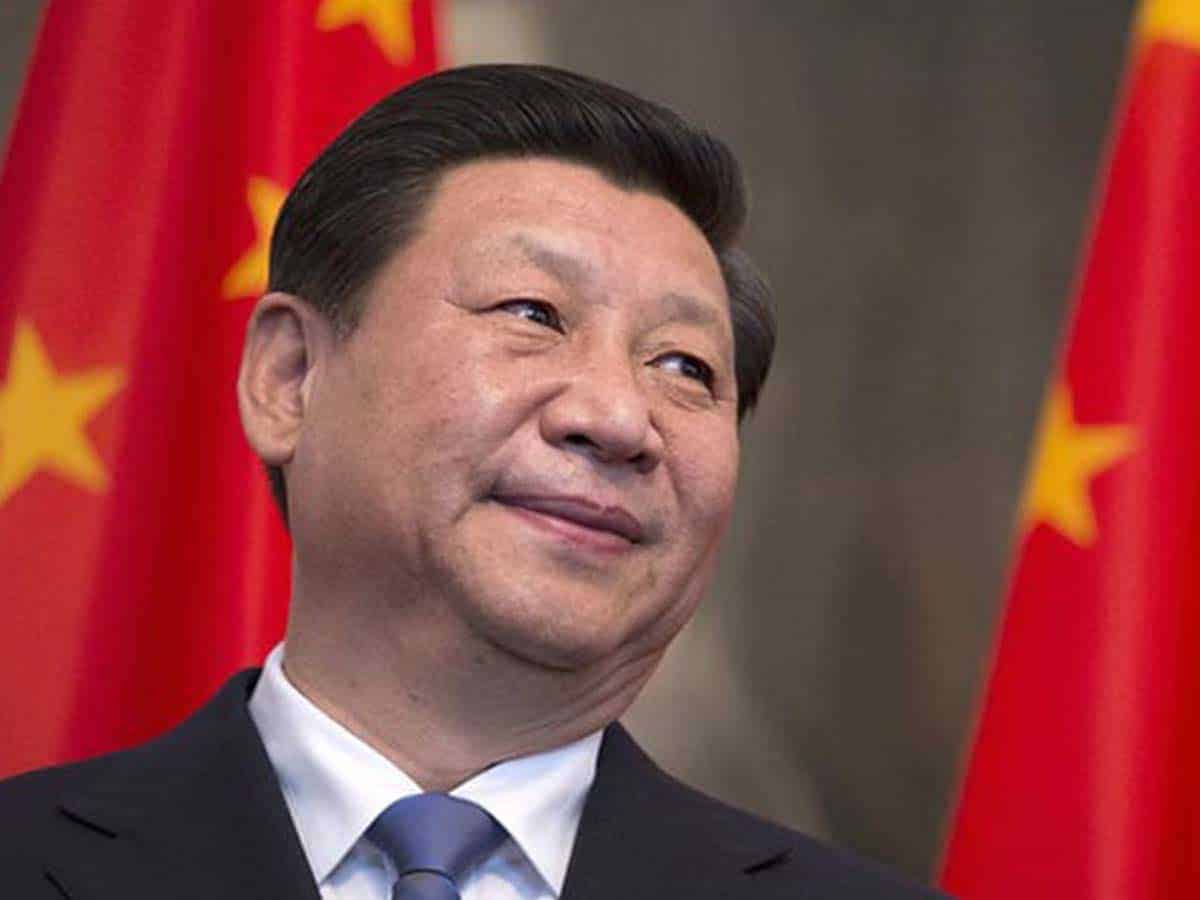Beijing: China’s ruling Communist Party on Thursday concluded its key annual conclave during which it approved the 14th Five-Year Plan and Vision 2035, a long-term development plan which observers say hints at the continuation of President Xi Jinping in power for the next 15 years.
The four-day plenary session of the Communist Party of China (CPC) heard and discussed a work report delivered by Xi on behalf of the Politburo of the CPC Central Committee, an official communique said on Thursday.
The session also adopted the CPC proposals for the formulation of the 14th Five-Year Plan (2021-2025) for National Economic and Social Development and the Long-Range Objectives Through the Year 2035.
The session was attended by 198 members of the CPC Central Committee and 166 alternate members of the CPC Central Committee, official media reported.
While the 14th Five-Year plan envisages a massive overhaul of the country’s domestic market to boost consumption to reduce China’s reliance on shrinking exports markets, the Vision 2035 visualises a long-term plan, reflecting the vision of President Xi.
The Vision 2035 plan prompted speculation that Xi intends to essentially be “president-for-life”.
The aim of Vision 2035, says Benjamin Hillman, a professor at the Australian National University, is to “set goalposts for China’s progress towards achieving high-income status [being a fully developed nation] by 2049“.
Yet the “very idea of a 2035 manifesto has also prompted speculation that Xi intends to lead China through this period, becoming, essentially, president-for-life,” he told the BBC.
Xi, 67, has emerged as the CPC’s most powerful leader after its founder Mao Zedong, holding the posts of CPC General Secretary, head of the military besides the Presidency with prospects of life-long tenure.
A constitutional amendment in 2018 has removed the two five-year term limit for the President, which would enable Xi to continue in power. His second term as the president is due to end in 2022.
Since he took over power in 2012, Xi firmly established his stamp of authority, doing away with the past system of collective leadership.
All CPC meetings including the Plenum are held in tight secrecy and the proceedings of such meetings other than the official handouts were rarely publicised.
Though the main agenda of the meeting was stated to be the next Five-Year Plan, the plenum was expected to review the political situation as the conclave took place days ahead of the November 3 US presidential election.
China, where the coronavirus emerged in December last year at Wuhan, figured prominently in poll campaigns of both President Donald Trump, a Republican, and his Democratic challenger Joe Biden.
While China’s ties with the US deteriorated to historic low, both Trump and Biden were expected to follow tough hardline policies towards Beijing.
China is also battling an adverse image as COVID-19 spread all over the world, killing more than a million people.
The country also faced a tough international situation after it passed a controversial National Security Law this year for Hong Kong amidst massive opposition from the local people and the international community, virtually taking over the security of the Special Administration Region for the first time since it was transferred to China by Britain in 1997.
The meeting is also being held in the backdrop of the stalemate in the border standoff between India and China in eastern Ladakh, which had affected the relations between the two neighbouring countries.
The CPC communique said China will accelerate the modernisation of national defence and the military, which is key to Xi’s vision of China’s emergence as a major global power.
It calls for integrated efforts to build a prosperous country and a strong military.
The country’s national defence capabilities and economic strength should be strengthened at the same time, it said.
It said China will nurture a strong domestic market and establish a new development pattern.
The country will ensure smooth domestic circulation and let domestic and international circulations reinforce each other, spurring consumption in an all-round way and expanding investment, the document said.
It said that China will integrate the strategy of expanding domestic demand with deepening supply-side structural reform and create new demand through innovation and high-quality supply.

